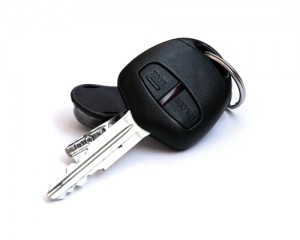
Since I personally couldn’t tell the difference between an awesome car deal and one that will leave me crying five minutes after I sign the papers, I consulted someone who at least knows enough to not get bamboozled on the lot. Have I mentioned how awesome it is to be dating someone with so much practical knowledge? I’m book smart, but when it comes to the real world and how things work (including the stove), I’m totally lost. Anyway, he helped me come up with some things you should look for when buying a car, be it brand-spanking new from the factory or older than dirt.
Handy-Dandy Tips to Avoid Buying a Lemon
- When checking used car prices, be sure to compare them against several different sources, as information can vary.
- Look for even wear on the tire tread. If it is uneven, you could run into problems with the ball joints, tie rods, and the alignment.
- When you start the car, look for smoke (black or white) coming from the tail pipe, which can indicate possible engine and/or transmission problems. Both of those things can be extremely expensive to fix, sometimes costing more than the used car itself. Believe me, I’ve run into this issue before, and it blows.
- Lift the hood of the car and look at the belts to make sure they aren’t frayed or glossing, which can indicate possible breaking, snapping, or other issues that require replacing the belts.
- When checking the engine oils, also check for white film build-up under the cap, a sign that water or condensation is getting into the oil. Theoretically, oil should be the only thing in your oil. If water is getting in there, it can ruin your engine, which of course means mega-expensive repairs.




While there are a lot of truly talented guys out there, you won’t want to trust your vehicle with anyone who isn’t certified. Don’t just settle for one certificate, either. The more certifications a shop owner has on display, the greater his dedication to quality training and service. Look for certificates issued by the National Institute for Automotive Service Excellence or by the Automotive Service Association.